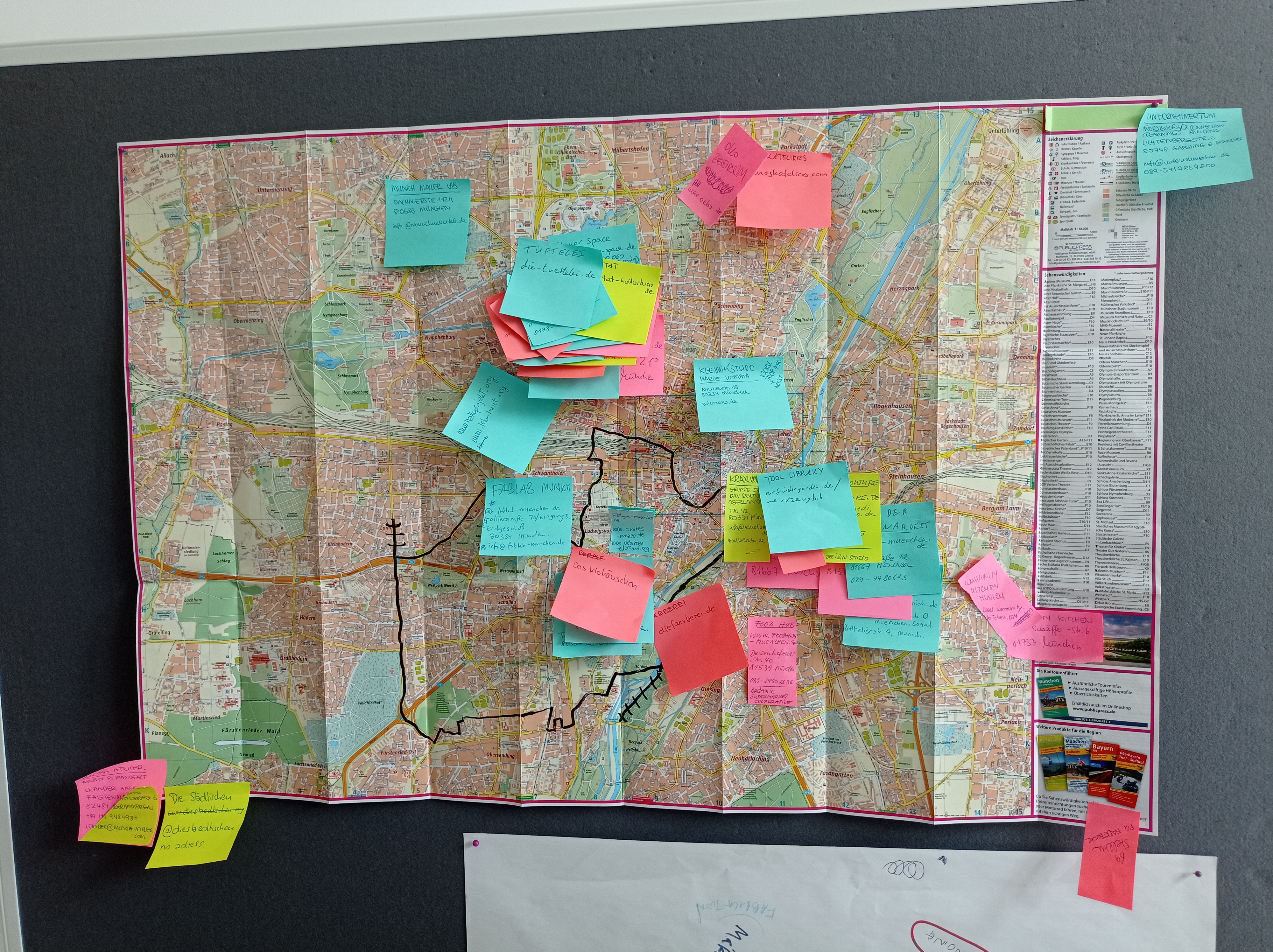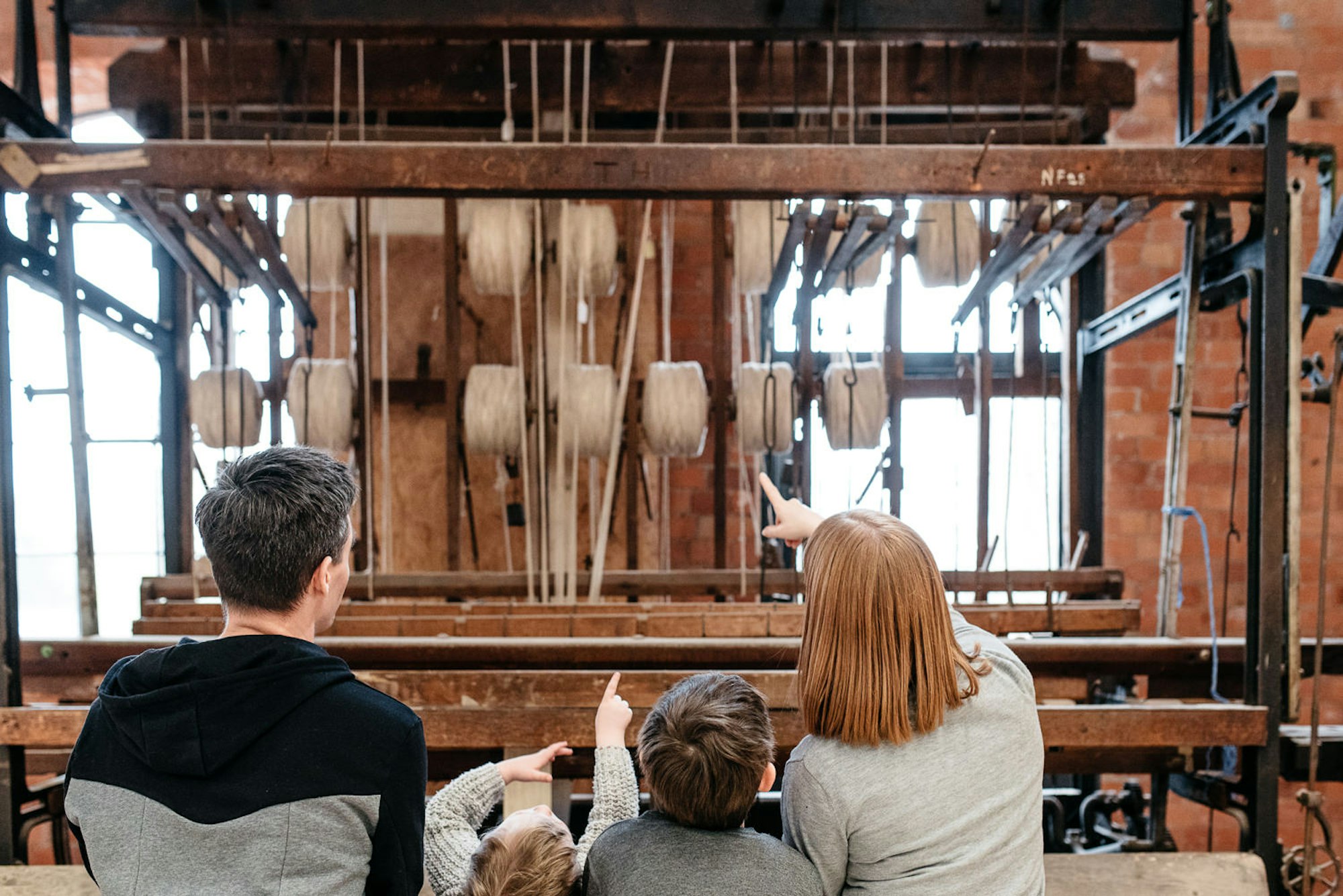Stories / Inspiration /
Graduates Guide: how to carry on making

Thousands of students across Scotland are coming to the end of a frantic year of making. You were desperate to finish and never step foot in that studio again but now that the deadlines have all been met and the work all handed in, you're left with fidgety hands, missing the familiar satisfaction of turning ideas into finished objects on a daily basis. Rather than sitting back and drowning your sorrows on Netflix, now is the time to think about how you can keep on making. It might be how you want to earn your money, it might be a hobby, or this might be the start of a whole new learning curve.
1. Carry on learning; classes and courses

Taking on a fabrication course or class is a fantastic way to familiarise yourself with a new process or material. It's also a great way to meet other people interested in making, and to get to know the local 'maker scene' in your area. We're fortunate in Scotland to have a whole host of open access workshops offering classes and courses. Alongside these you'll also find a number of Scottish makers and manufacturers like Squareclub's Jamie Tetsill or Laura Spring who have opened their doors to teach the processes behind their own fabrication businesses.
Read our guide to fabrication courses in Scotland here
This guide will give you an idea of where to find different types of courses and classes, but it's definitely a good idea to get in touch with each organisation to get an up to date course list.
2. Become an apprentice or technician

If you want to spend your days making and manufacturing and you're keen to keep on learning, an apprenticeship can be a great option. We'd recommend deciding on the type of business that you would like to do your apprenticeship with first, and then taking the time to get in touch, introduce yourself and find out more about what they do. Do bear in mind that some makers and fabrication businesses will be taking part in a government apprenticeship scheme, others will regularly take on entry level employees and some won't have capacity to take on either.
We've heard that Risotto Studio are currently hiring a print technician, find out more here
3. Start your own fabrication business

In the words of Edinburgh's SPLINTR, run by Steve, Jack and Francis who started their bespoke fabrication business straight out of art school "make a job, don't take a job." We've seen a whole host of independent fabrication businesses emerging and thriving over the last couple of years. Getting your first couple of commissions can be tricky – make sure you've got a website up and running, register as self-employed, and immerse yourself in the local creative community so that people know who you are and what you do.
You can read more about SPLINTR's experience in their Factory Friday feature here
4. Find somewhere to make – open access workshops and facilities in Scotland

Your university's workshops may be closing their doors to you but there are a number of really well equipped workshops and facilities all over Scotland. Whether you're looking for sculpture workshops, print making facilities, digital fabrication workshops, textiles facilities, jewellery bench hire and access to tools, or a ceramics studio – you shouldn't have a problem finding affordable access to a workshop.
Read our graduate guide to workshops and fabrication facilities in Scotland
5. Stay Inspired and meet likeminded folk
Unless you're incredibly organised and moving straight into a studio space the likelihood is that you'll soon start to miss the inspiring presence of your studio mates. Luckily in Scotland there are loads of creative networks to tap into running regular events and meetups, as well as being able to give you top tips on coworking and shared studio spaces. Creative Edinburgh, Creative Dundee, Analogue Social, Creative Mornings, The Whisky Bond, Upland, SFCN, Pecha Kucha and Codebase are all good starting points.
Though it won't quite fill the void, keeping abreast of blogs like Core77, Design Milk, Makezine and NotCot can really help to keep those creative juices flowing. You could even sign up to the Make Works newsletter so that you'll get fortnightly inspiration straight into your inbox.
As part of our Factory Friday series we often ask makers and manufacturing business what advice they would give to emerging designers, makers and artists in Scotland. Here are some of the best tips we've had over the last year or so.
Flux Laser Studio
1. Say yes.
2. Talk to everyone – tell everyone what you do: you are your best PR person.
3. Have patience and confidence, or at least pretend that you do.
4. Other makers, designers and manufacturers are not your competition, but collaborators, teachers and people who can help you when you need it.
5. You are not alone in this, sometimes it might feel lonely, you might only speak to yourself in the studio some days, but there are lovely people out there who host events like Analogue Social to meet up with people, or organise a Fika like those we have at The Whisky Bond, go there and follow steps 1 & 2!
You can read the rest of Flux Laser Studio's Factory Friday here
Broad Workshop

“I think the single best move I've made was joining a shared workshop. With this kind of work you're always learning and it's invaluable to be able to share in other peoples knowledge and experience. It also affords the opportunity to be able to collaborate on projects that might be too much to take on single handedly.”
You can read the rest of Broad Workshop's Factory Friday here
Willie Love, Westend Cabinetmakers

“Get a good accountant! Accountancy is the biggest problem. As a small company you're treated like a large company. There's no help for small companies. Cash flow is the hardest thing to control. You’ve got all these balls in the air, hoping that they all land in the right order. You get a late cheque and that’s it. It’s not because you’re not talented at what you do, it’s just a side of the business that you don’t usually give much thought to.”
You can read the rest of Westend Cabinetmaker's Factory Friday here
Old School Fabrications:

“This is a bit naff, but someone once said to us that ‘The harder you work, the luckier you get’. This has always stuck and in Old School Fabrications' because it's been true.”
You can read the rest of Old School Fabrication's Factory Friday here
Categories
Inspiration
Related stories
Day 23 | Make Works Residencies 01 | Catching up with Katy West
Craft Scotland Conference
Happy International Women's Day!
Material Monday - Woven Polypropylene
Maker Speed Dater





